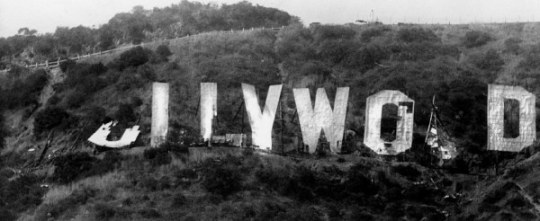By Media Ed (http://mediaed.org.uk/film/alternative-cinema)
Technically, an ‘independent’ film is just one which has not received its financial backing from a major Hollywood studio. But for many modern American directors ‘indie’ means more than this: it means an opportunity to break the rules of traditional narrative and to experiment with new or different ways of telling stories.
This makes it particularly useful for teaching about Hollywood conventions: films which break the rules help to make the rules obvious.
Many of the ways in which directors ‘break the rules’ are heavily influenced by 1960s European cinema, in particular the theories of French director Jean-Luc Godard. (The definitions of ‘alternative’ cinema below are adapted from Peter Wollen’s 1972 essay Jean-Luc Godard and Counter Cinema: Vent d’Est.) Sometimes indie directors pay specific ‘homage’ to their European heroes: both Tom DiCillo’s Living in Oblivion and the David Lynch TV series Twin Peaks include dream sequences with a dwarf in a red-curtained room, a reference to Fellini.
Godard had a political motivation for exposing the constructed nature of cinema and challenging the audience’s preconceptions. However, many of the characteristics of modern ‘indie’ cinema are being adopted by the mainstream, and some films with ‘indie’ characteristics have become huge commercial successes. One example is the Blair Witch Project, with its ‘indie’ characteristics of no stars, handheld camerawork, direct address to camera, and an ambiguous ending.
Quite a few of these alternative techniques are finding their way into mainstream television as well: for example, the teenage programme As if includes jumpcuts and direct address to camera, while a recent Buffy the Vampire Slayer used Fellini’s red curtains for a dream sequence.
Some characteristics of alternative films
Narrative structure
Instead of the ‘classic Hollywood narrative’ of set-up, conflict and resolution, alternative films may use:
- episodes or chapters, like a novel
- unexplained digressions or tangents
- abrupt or ambiguous endings.
Identification with characters
We empathise and get emotionally involved in characters because mainstream films:
- concentrate on one or two characters (often familiar stars)
- provide clear explanations of their motivation
- use close-ups so that we can see what they are thinking or feeling.
Alternative films may deliberately ‘distance’ the audience by:
- having many characters with no stars
- giving insufficient information about characters’ motivations
- not using close-ups
- characters addressing the audience directly.
Diegesis
This Greek word refers to the fictional ‘world’ seen in the film. In Hollywood films, everything belongs to one fictional world: changes to normal time and space (such as flashbacks) are always obvious so that they don’t confuse the audience. Alternative films challenge this by techniques including:
- failing to make dream sequences and flashbacks obvious
- using more than one fictional ‘world’ at a time (eg having characters emerge from a film and interact with people in a film audience, as in Last Action Hero)
Intertextuality
This means references to other films, TV programmes and so on, in the form of parodies, ironic comments and visual jokes. Intertextuality features in many Indie films, but is also becoming increasingly common in mainstream films.
Making film-making obvious
Mainstream cinema tries to make the audience believe in the reality of the events on the screen, avoiding any techniques which would draw attention to the film-making process.
Alternative cinema may deliberately disrupt this by:
- characters acknowledging the audience
- obvious editing between images which don’t connect
- blank screens, title cards etc.
Recommended indie films
- Living in Oblivion (DiCillo)
- Eraserhead (18)
- Stranger Than Paradise (Jarmusch)
- Night On Earth (Jarmusch)
- Dead Man (Jarmusch)
- Twin Peaks (Lynch)
- Clerks (Kevin Smith)
- Barton Fink (Coen)
- Slacker (Linklater)

No comments:
Post a Comment